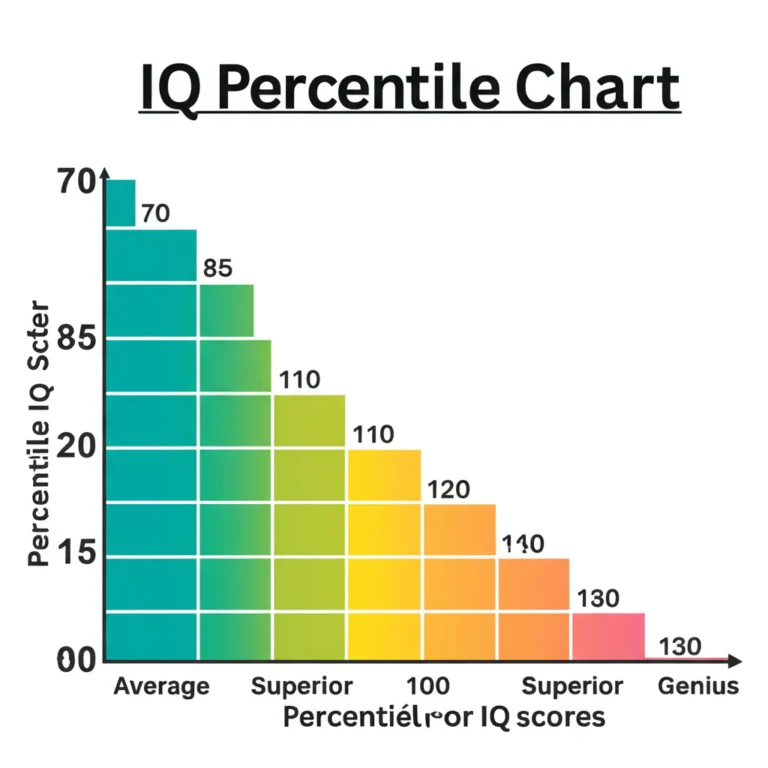Support our educational content for free when you buy through links on our site. Learn more
Is 137 a Good IQ? [2024] 🧠
Have you ever wondered if your IQ score is considered good? Maybe you recently took an IQ test and received a score of 137, and now you’re curious to know how it stacks up. Well, you’ve come to the right place! In this article, we’ll delve into the world of IQ scores and determine whether a score of 137 is considered good. So, let’s get started!
Quick Answer
Yes, a score of 137 on an IQ test is considered to be very good. In fact, it is well above average and falls into the “above average” or “bright” category. With an IQ score of 137, you can expect to have a high level of intellectual ability and excel in various cognitive tasks. Congratulations on your impressive score!
✅ 👉 CHECK PRICE on: IQ Tests | Mensa IQ Tests | Free IQ Tests | IQ Test Preparation
Quick Tips and Facts
- An IQ score of 137 is considered to be very good and falls into the “above average” or “bright” category.
- IQ scores follow a bell curve, with the average score being 100.
- IQ tests measure various cognitive abilities, including problem-solving, reasoning, and spatial awareness.
- Your IQ score is a reflection of your performance compared to others in the same age group.
- IQ scores have been increasing over generations, a phenomenon known as the Flynn effect.
- Remember that IQ scores are just one measure of intelligence and do not capture the full range of abilities or chances for success.
Background: Understanding IQ Scores

Before we dive deeper into the significance of a score of 137, let’s first understand how IQ scores are calculated and what they represent. IQ, or Intelligence Quotient, is a measure of a person’s cognitive abilities and is typically assessed through standardized tests.
IQ scores are calculated by comparing an individual’s performance on an IQ test to the performance of others in the same age group. The average IQ score is set at 100, with scores above or below indicating above-average or below-average intelligence, respectively.
IQ scores follow a bell curve distribution, with the majority of scores falling near the average and fewer scores at the extremes. This distribution allows for the classification of IQ scores into different categories, each representing a range of intellectual abilities.
Breakdown of IQ Scores
Now that we have a basic understanding of IQ scores, let’s take a closer look at the breakdown of scores on an IQ scale. Keep in mind that these categories are approximate and may vary slightly depending on the specific IQ test used.
- Profound mental disability (1-24): Individuals in this range typically require significant support and have severe limitations in cognitive functioning.
- Severe mental disability (25-39): Individuals in this range have significant cognitive impairments and may require substantial assistance in daily life.
- Moderate mental disability (40-54): Individuals in this range have moderate cognitive impairments and may face challenges in various areas of life.
- Mild mental disability (55-69): Individuals in this range have mild cognitive impairments and may require some support in certain areas.
- Borderline mental disability (70-84): Individuals in this range have borderline intellectual functioning and may face some difficulties in cognitive tasks.
- Average intelligence (85-114): This is the range where the majority of people fall, representing average cognitive abilities.
- Above average or bright (115-129): Individuals in this range have above-average cognitive abilities and may excel in various intellectual tasks.
- Moderately gifted (130-144): Individuals in this range have moderately high cognitive abilities and may demonstrate exceptional talent in certain areas.
- Highly gifted (145-159): Individuals in this range have highly advanced cognitive abilities and may excel in multiple domains.
- Exceptionally gifted (160-179): Individuals in this range have exceptional cognitive abilities and may be considered geniuses in their respective fields.
- Profoundly gifted (180 and up): Individuals in this range have profoundly advanced cognitive abilities and are exceptionally rare.
As you can see, a score of 137 falls into the “above average” or “bright” category, indicating a high level of intellectual ability. With a score of 137, you can expect to excel in various cognitive tasks and demonstrate above-average problem-solving and reasoning skills.
What IQ Tests Measure
IQ tests are designed to measure a range of cognitive abilities, including problem-solving, reasoning, spatial awareness, verbal comprehension, and visual abilities. These tests aim to assess your intellectual potential and provide an estimate of your cognitive abilities compared to others in your age group.
IQ tests typically consist of a series of questions or tasks that assess different aspects of intelligence. These tasks may include solving puzzles, identifying patterns, completing analogies, and answering questions that require logical reasoning.
It’s important to note that while IQ tests provide valuable insights into cognitive abilities, they do not capture the full spectrum of human intelligence. Other factors, such as emotional intelligence, creativity, and social skills, also play a significant role in determining a person’s overall intelligence and success in life.
How Smart is an IQ of 137?
With an IQ score of 137, you can consider yourself to be highly intelligent. This score places you well above the average population and indicates that you possess above-average cognitive abilities. Individuals with an IQ of 137 often excel in academic pursuits, problem-solving tasks, and complex reasoning.
It’s important to remember that intelligence is a multifaceted concept, and IQ scores are just one measure of intellectual ability. While a high IQ score can be an advantage in many areas of life, it does not guarantee success or happiness. Other factors, such as motivation, perseverance, and emotional intelligence, also play crucial roles in achieving personal and professional goals.
Is 137 IQ Good for a 14-Year-Old?
Yes, an IQ score of 137 is considered to be very good for a 14-year-old. It indicates above-average cognitive abilities and places the individual in the “above average” or “bright” category. With a score of 137, a 14-year-old can expect to excel in academic pursuits, problem-solving tasks, and critical thinking.
It’s important to note that IQ scores can fluctuate slightly over time, especially during adolescence, as cognitive abilities continue to develop. Therefore, it’s always recommended to interpret IQ scores in conjunction with other factors, such as academic performance, interests, and personal strengths.
What Was Einstein’s IQ?
Albert Einstein, one of the greatest scientific minds in history, is often associated with exceptional intelligence. However, it’s important to note that there is no definitive record of Einstein’s IQ score. IQ tests as we know them today were not widely used during Einstein’s time, and he never took a standardized IQ test.
That being said, it is widely believed that Einstein had an exceptionally high IQ. Some estimates suggest that his IQ may have been around 160, placing him in the “exceptionally gifted” category. However, it’s important to remember that these estimates are speculative and not based on actual test results.
Einstein’s genius was not solely determined by his IQ score but rather by his groundbreaking contributions to the field of physics and his ability to think creatively and critically. His achievements serve as a reminder that intelligence is not solely defined by a number but by the impact one makes on the world.
What IQ is in the Top 1%?
The top 1% of IQ scores represents individuals with exceptionally high cognitive abilities. While the exact IQ score required to be in the top 1% may vary slightly depending on the specific IQ test used, it generally falls within the range of 135 to 140 and above.
With an IQ score of 137, you are already in the top 1% of the population in terms of intellectual ability. This places you among a select group of individuals who possess exceptional cognitive skills and have the potential to excel in various intellectual pursuits.
A Word From Free IQ Tests™
At Free IQ Tests™, we believe that intelligence is a multifaceted concept that cannot be fully captured by a single number. While IQ scores provide valuable insights into cognitive abilities, they should not be the sole determinant of a person’s worth or potential.
It’s important to remember that intelligence comes in many forms, and each individual possesses a unique set of strengths and abilities. Embrace your intellectual gifts, but also nurture other aspects of your being, such as emotional intelligence, creativity, and social skills.
In conclusion, a score of 137 on an IQ test is considered to be very good and falls into the “above average” or “bright” category. With an IQ of 137, you can expect to have a high level of intellectual ability and excel in various cognitive tasks. However, it’s important to remember that intelligence is not solely defined by a number but by the impact one makes on the world.
We hope this article has provided you with valuable insights into IQ scores and their significance. If you’re interested in exploring more about IQ tests, improving your IQ, or finding free IQ tests, be sure to check out the following links:
If you’re curious about what a real IQ test is like, you can find more information in our article: Is There an Actual Free IQ Test?
Thank you for joining us on this journey into the world of IQ scores. Remember, you are more than just a number, and your potential knows no bounds!






